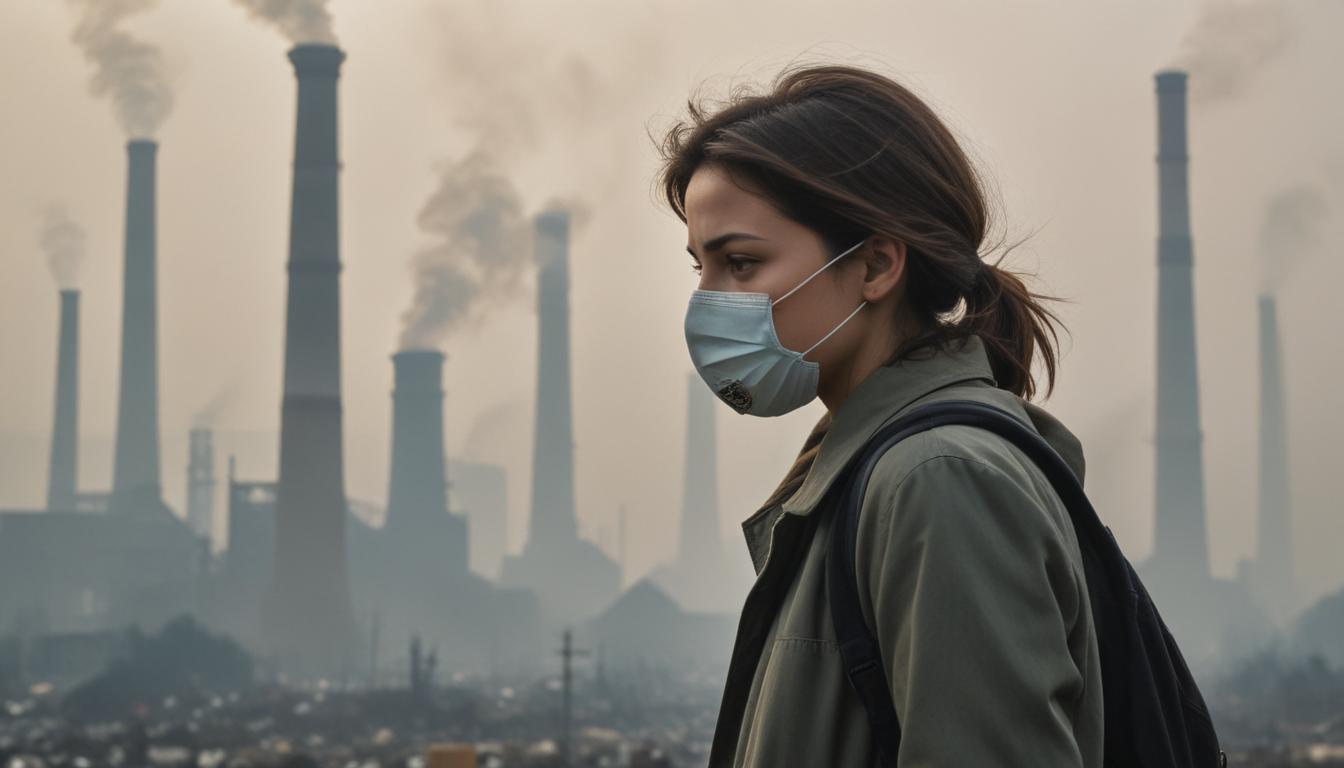Now Reading: How Pollution Is Damaging Your Health
-
01
How Pollution Is Damaging Your Health
How Pollution Is Damaging Your Health

Is Pollution Secretly Harming Your Health? A Guide
Do you ever feel a tickle in your throat on a hazy day, or notice your allergies flaring up for no reason? You might blame it on a long week or a passing bug, but there could be a more persistent, invisible culprit at play. The air you breathe, the water you drink, and the environment you live in are constantly interacting with your body. When they are contaminated, your health can pay the price. This lingering concern about how our polluted world affects us and our families is a valid and growing anxiety for many.
The good news is that you are not powerless. While the problem of global pollution is vast, understanding its specific effects on your health is the first and most crucial step toward protecting yourself. Knowledge empowers you to make smarter choices, adapt your environment, and advocate for your well-being. This guide will break down the complex ways pollution impacts your body, from your lungs to your brain, and provide you with practical, actionable strategies to reduce your exposure and safeguard your health for years to come.
The Air We Breathe The Respiratory Threat
When we think of pollution, the first thing that often comes to mind is smog-filled city skies. This air pollution, primarily composed of microscopic particulate matter (often called PM2.5), nitrogen oxides from vehicle exhaust, and ground-level ozone, poses a direct and immediate threat to our respiratory system. When inhaled, these tiny particles and gases act as irritants. They inflame the sensitive lining of our airways, from our nasal passages all the way down into our lungs. This can trigger immediate symptoms like coughing, wheezing, and shortness of breath, especially in sensitive individuals.
This constant irritation does more than just cause temporary discomfort. Over time, chronic exposure to air pollutants can overwhelm the body’s natural defenses. This can lead to the development or worsening of serious respiratory conditions. For individuals with asthma, high-pollution days can trigger severe attacks. For others, long-term exposure can lead to chronic bronchitis, reduced lung function, and an increased susceptibility to infections. The most serious risk is the link between fine particulate matter and the development of lung cancer, as these microscopic pollutants can cause cellular damage over many years.
More Than Just Smog The Systemic Effects of Pollution
The damage from pollution is not confined to our lungs. The smallest pollutants are so tiny that they can pass from the lungs directly into the bloodstream. From there, they can travel throughout the entire body, causing widespread inflammation and oxidative stress. This systemic impact means that pollution can contribute to a host of health problems that you might never have associated with the environment.

Your Heart and Brain on Pollution
Once in the bloodstream, pollutants can irritate the lining of your blood vessels, much like they do your airways. This inflammation contributes to the buildup of plaque in the arteries (atherosclerosis), increases blood pressure, and makes the blood more likely to clot. As a result, long-term exposure to significant air pollution is a recognized risk factor for heart attacks, strokes, and other serious cardiovascular diseases. The impact on your brain is equally concerning. Emerging research is drawing strong links between air pollution and neurological health. The chronic inflammation caused by pollutants can affect the brain, contributing to accelerated cognitive decline, a higher risk of dementia, and even impacting mental health by exacerbating conditions like anxiety and depression.
Skin Deep The Dermatological Dangers
Your skin is your body’s largest organ and its primary barrier against the outside world, but it is not impenetrable. Airborne pollutants like soot, dust, and chemicals can settle on your skin, clogging pores and generating free radicals. This process leads to oxidative stress, which breaks down the collagen and elastin that keep your skin firm and youthful. The result is premature aging in the form of fine lines, wrinkles, and pigmentation spots. Beyond cosmetic concerns, this can disrupt the skin’s protective barrier, making it more vulnerable. For those with pre-existing skin conditions, pollution can be a major trigger. It can cause flare-ups of inflammatory issues like eczema, psoriasis, and acne, leaving your skin feeling irritated, sensitive, and compromised.
Protecting Yourself Practical Steps for a Healthier Life
While we cannot individually solve the global pollution crisis overnight, we can take meaningful and effective steps to reduce our personal exposure and fortify our health against its effects. Empowering yourself with a defensive strategy is key to living healthier in a polluted world.
Improving Your Indoor Environment
Many people are surprised to learn that indoor air can often be more polluted than outdoor air. Pollutants from cooking, cleaning products, furniture, and paint can accumulate inside our tightly sealed homes. One of the most effective tools for combating this is a high-quality air purifier with a HEPA filter, which is designed to capture even the smallest particulate matter. You can also introduce air-purifying houseplants, such as snake plants, spider plants, and peace lilies, which are known to naturally filter out common toxins.
Beyond technology and plants, simple habits make a big difference. Ensure your home is well-ventilated by opening windows for at least a few minutes each day. When you clean, use a vacuum with a HEPA filter to trap allergens and dust effectively. Be mindful of the products you bring into your home; opt for natural, unscented cleaning supplies and avoid artificial air fresheners and candles that release harmful volatile organic compounds (VOCs) into the air you breathe.
Smart Outdoor Habits
Managing your exposure outdoors requires awareness and planning. A powerful tool at your disposal is the Air Quality Index (AQI), which is readily available online and through smartphone apps. Before planning strenuous outdoor activities like running or cycling, check the AQI. On days when the rating is high, it is wise to reschedule your workout or move it indoors to protect your lungs.
When you must be outside on poor air quality days, consider wearing a well-fitting mask, like an N95, which is effective at filtering out fine particulate matter. This is especially important for children, the elderly, and anyone with existing heart or lung conditions. Finally, remember that your diet plays a defensive role. Consuming a diet rich in antioxidants—found in fruits, vegetables, nuts, and seeds—can help your body combat the oxidative stress caused by pollution, strengthening your cellular defenses from the inside out.



































